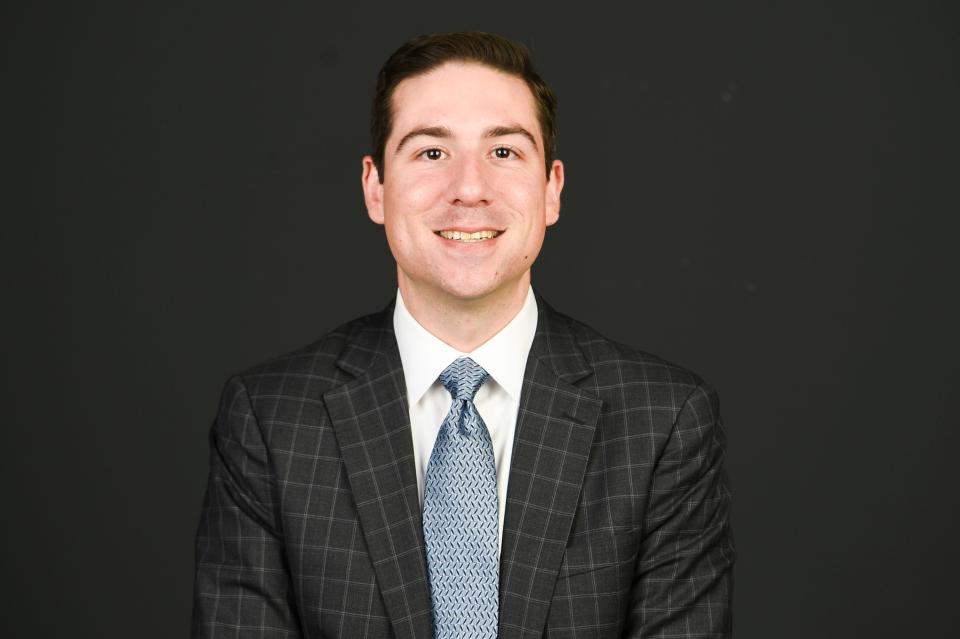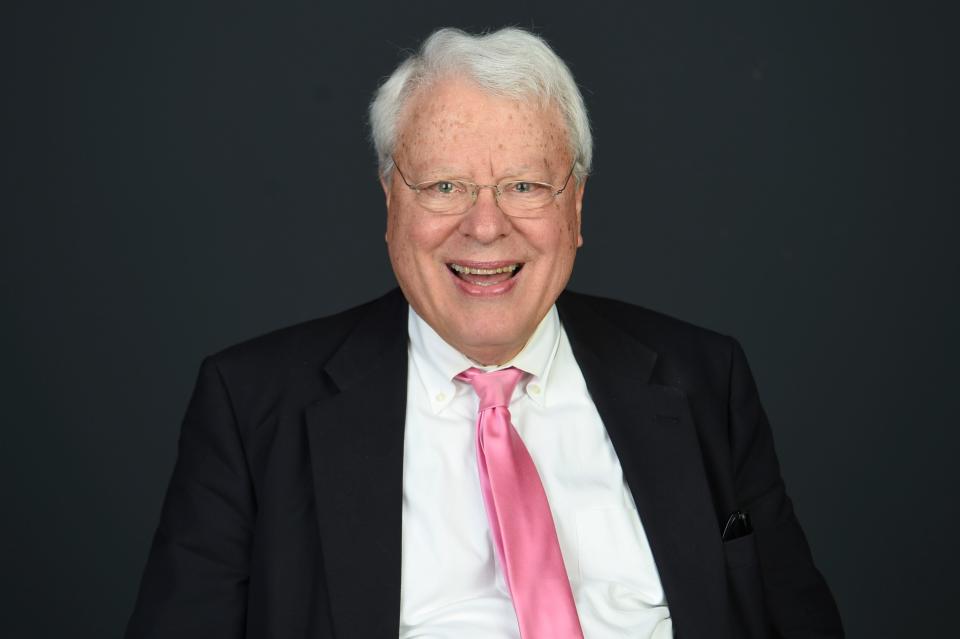Knoxville municipal judge voter guide 2023: Get to know the candidates and their plans
Longtime Knoxville Municipal Judge John Rosson faces a challenger this year with Tyler Caviness in the race.
After four candidates were whittled down to two ahead of the Nov. 7 general election, voters will have a choice in who they'd like to be the one calling the shots in city code and parking violation disputes.
Rosson, 75, hopes to serve for another four years after working for 36 as the city's judge, a position that handles mostly traffic and city ordinance violations. In the campaign, Rosson touted his experience and dedication to the job and the community.
Caviness, 31, campaigned to bring what he called a people-first focus to the court. He is former public defender and a private practice attorney.
Rosson and Caviness had similar primary vote totals, with Rosson garnering 38% and Caviness 36%.
Knox News sat down with the candidates. Here are summaries of their responses.
Tyler M. Caviness

Leadership style in the courtroom
A people-first approach is how Caviness would lead the courtroom, he said.
“I've seen the impacts that the court can have or does have on people,” he said, adding that he’d lead with a recognition that “it’s not the judge’s courtroom, it’s really the people of Knoxville's courtroom.”
Changes he'd make to the court
If elected, Caviness’ priority would be to improve accessibility to the court systems and enhance transparency when accessing information.
“The website that we have for the city court is not a picture of clarity,” he said.
For most people, going to the city court is the only time that they ever interact with the court system, and Caviness said his priority would be to make navigating that experience as seamless as possible.
If elected, Caviness would make the court's budget a more open process, holding public forums to seek community input and making budgetary information more robust and available.
Technological advancements
Caviness would use technology to improve the user experience for community members. One way of doing so is through sophisticated data collection and analysis.
For instance, if residents in a certain part of the city are constantly receiving more speeding tickets, Caviness' hope is that sharing that data with the city and the police department could bring about meaningful change.
"With data, we can see if there is a certain segment of the population that we're disproportionately impacting and if there is, what should we be doing?" Caviness said.
Working with community advocacy groups
One idea Caviness would like to implement is to have a citizen's advisory group made up of a cross-section of people to give feedback on on the court system.
"All government agencies should be eager to seek citizens' input," Caviness said, adding that he would like to work with community groups involved with populations impacted by the court system.
Another way to better serve those in the court system would be make available social and mental health service workers outside the court itself, he said.
Factors you weigh when it comes to important decisions, such as taking away a driver’s license
Listening to people's specific cases in their own words, looking at their history and striking a balance between what's fair for the person and for the rest of Knoxville would be Caviness' approach when making such decisions.
"We want to make sure we're not getting people who are working to get by and letting city court be one of the things that is pushing them further away from forward progress," he said.
JOHN R. ROSSON

Leadership style in the courtroom
Across 36 years, Rosson said he’s adopted a style of leniency that comes from listening to people’s stories. He casts himself as a people person who enjoys his job, which cuts across all segments of Knoxville society.
“I think the most important thing a judge can do, you've got to listen,” Rosson said. “You can be the smartest guy or lady in the world, but you've got to listen, because everybody has a different story, and they’re all special.”
Rosson described many instances when he has walked community members through their options and has extended court dates to allow them time to acquire a license or car insurance.
Changes you’d make to the court
Rosson is frank in his positive assessment. He said the court has made itself available for walk-in appointments and is transparent in its online presence.
“I’m not sure we’d make any changes,” Rosson said. “I think we are doing what we’re supposed to do right now. We have day court, we have night court, we hear cases as they come in.”
He gave credit to his staff, including court administrator Valerie Coleman, who he said were polite in dealing with the public.
Technological advancements
Rosson touted recent technological advancements in the court, including a large, high-definition TV that allows him to get a more accurate picture of traffic violations through traffic camera and police footage and Google Earth.
“It really enables both the officer and the citizen an opportunity to adequately and accurately explain what exactly happened,” Rosson said. “So that works out really well. That television has really been a great source of accuracy.”
He also referenced a phone-in service that offers translation into 173 languages, allowing communication with people from all over the world who come to Knoxville.
Working with community advocacy groups
Rosson said he is willing to work with community organizations. He has held court at the Knoxville Area Urban League on Fifth Avenue with General Sessions Court Judge Chuck Cerny three times, and plans to do so again Aug. 20.
The Urban League requested Rosson have court there since some residents are fearful about appearing in the courtroom.
“It works out really well for everybody,” Rosson said. “We do make some people pay something, sometimes. Sometimes, we suspend it all, depending on the situation.”
Factors you weigh when it comes to important decisions, such as taking away a driver’s license
Rosson considers three factors when it comes to traffic and city ordinance violations: the degree of the offense, the record of the offender and the offender’s demeanor. He said he tries to avoid harsh punitive actions, such as revoking a license.
He talks defendants through the pleas available to them, as well as the legal definitions of violations like running through a red light.
Part of Rosson’s lenient style is his openness to resetting court dates or waiving fees in light of personal situations. This includes delaying judgments until a person can obtain insurance and registration for their vehicle. Without those measures, fees from a simple traffic violation can stack up quickly.
“I really want to help people do the right thing,” Rosson said. “I don’t want to put people in a position where they have to choose between eating, paying their rent and paying their car insurance.”
This article originally appeared on Knoxville News Sentinel: Knoxville municipal judge guide 2023: Meet John Rosson, Tyler Caviness

